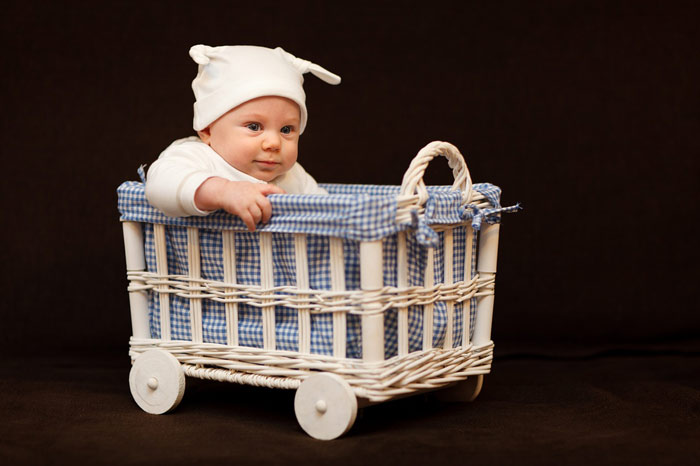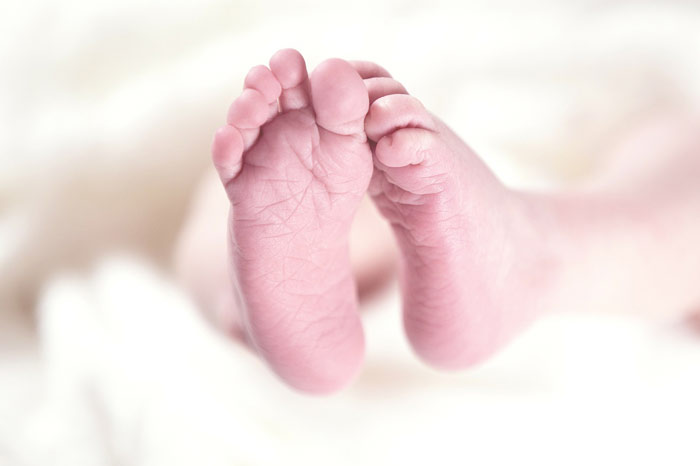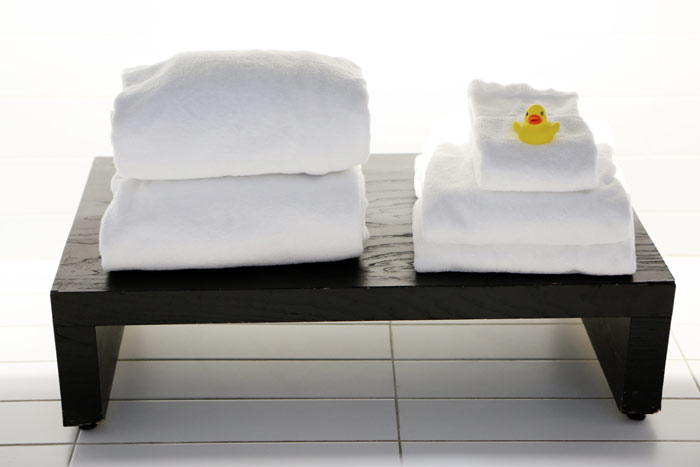If you’ve got a new baby in the house, his or her safety should be one of your primary concerns. After all, you don’t want anything bad to happen to your little bundle of joy, particularly during this delicate stage when his or her body is growing and developing at such a rapid rate. As fun as it is to watch your child roaming and exploring his or her new environment, it is crucial that you do everything in your power to eliminate unnecessary dangers. Here are 10 ways to prepare your home to keep your little one as safe as possible:

1. Block All Electrical Outlets
Babies are known for getting their tiny little fingers into just about everything, and that includes your electrical outlets. Not only that, but they can also attempt to stick toys and other items into the sockets. This presents a great risk that your little one will accidentally become electrocuted. Keep your baby safe by plugging up all outlets. You can find outlet blockers just about anywhere baby products are sold, so be sure to stock up.
2. Cushion Sharp Edges
As your little one learns to crawl and walk, he or she will be relatively unsteady at first. During these early developmental stages, trips and falls are common, so you’ll want to make sure that your baby won’t get injured on the way down. Look for any sharp edges and corners throughout your house, especially furniture. You can cover these edges with styrofoam or some other form of padding so that the damage will be mitigated as much as possible.
3. Store Chemicals Safely
Your home is filled with products that contain chemicals that could be potentially harmful to your baby if ingested. This includes common culprits like detergents, insect repellant and even shampoo. Make sure that all of these items are stored well out of reach or in a cupboard that can be securely locked. Don’t leave any of these chemicals out in the open for any longer than is necessary. It only takes a few seconds of you being turned around for your baby to sneak a mouthful of something dangerous.
4. Cook with Care
When you are working in the kitchen, it is easy to become distracted from watching what your little one is doing as you focus on preparing a meal. When cooking on the stove, use the back burners as much as possible and turn all pot handles away from the edge of the counter. You don’t want your baby to grab one and pull down a pot full of hot food on top of him or herself. The same goes for knives; keep them towards the middle of the counter rather than the edge when still in use. Put them straight into the dishwasher or sink when you are finished with them as well.
5. Choose a Firm Crib Mattress
 Your baby’s spine is still under construction at this point, so you need a crib mattress that will provide maximum support during this development stage. Choose a firm mattress, and don’t place bumpers or any other objects in the crib with your little one. While toys and blankets may look cute in the crib next to your baby, they present a serious risk of suffocation to your sleeping infant. In this case, it is best to err on the side of caution to keep the crib hazard-free.
Your baby’s spine is still under construction at this point, so you need a crib mattress that will provide maximum support during this development stage. Choose a firm mattress, and don’t place bumpers or any other objects in the crib with your little one. While toys and blankets may look cute in the crib next to your baby, they present a serious risk of suffocation to your sleeping infant. In this case, it is best to err on the side of caution to keep the crib hazard-free.
6. Lock Cupboards and Drawers
We all know that babies love to explore, and your cupboards and drawers can be a minefield of dangers. From hazardous chemicals to small objects that can cause choking to heavy items that can fall on your little one, there are too many risks to count in this area. Installing locks or latches on your cupboards and drawers can help to keep your little one safe. You can find these items anywhere that sells baby gear. Even if you think a drawer is likely to be out of reach, it is better to be safe than sorry. Babies are notoriously resourceful, and you’ll be surprised by what they can get into.
7. Practice Pet Safety
If you have pets in the home, be sure to store their food and water dishes away from your baby. You may wish to designate a particular area of your home specifically for your pets to keep them and your baby separated. Even if your pet is the most gentle animal you have ever seen, all bets are off when your baby pokes its eyes or pulls its tail. You should carefully supervise any time your baby is around your pets, and teach your little one as early as possible how to behave around animals. Your pets will likely need to be trained how to act around the baby as well.
8. Lock Toilets
 As your baby explores your home, he or she will likely discover the fun of splashing around in the toilet water. Not only is this incredibly unsanitary, but it is also very easy for your little one to take a tumble head-first into the bowl. It is surprising how little water is required for your baby to drown, so this is an unnecessary risk that it is best to avoid. It is not enough to just close your bathroom doors, as your little one will soon be big enough to open them.
As your baby explores your home, he or she will likely discover the fun of splashing around in the toilet water. Not only is this incredibly unsanitary, but it is also very easy for your little one to take a tumble head-first into the bowl. It is surprising how little water is required for your baby to drown, so this is an unnecessary risk that it is best to avoid. It is not enough to just close your bathroom doors, as your little one will soon be big enough to open them.
9. Have Emergency Numbers Ready
Although you don’t want to have to think about the worst-case scenario happening to you, it is better to be prepared than to be taken off guard. Look up any emergency numbers you might need, like poison control, the fire department and your pediatrician. Display these numbers prominently in your home, like on your refrigerator, where you can find them quickly when needed. Be sure to alert any babysitters or other child care providers to their location as well.
10. Be Alert at All Times
Even with all the preparation in the world, there may still be an area that you overlooked. It also cannot be understated how crafty curious babies can be when it comes to exploring their new world. The best way to keep your baby safe is to supervise him or her closely at all times. This way, you can jump in at the first signs of any danger. You’ll also have plenty of opportunities to teach your baby what is and isn’t appropriate behavior around the home. Soon enough, your little one will know what is allowed and what isn’t, but you should still be wary at all times.










